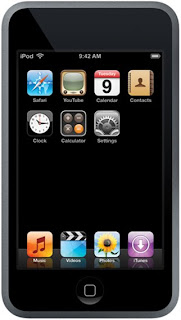Steve Jobs is universally known for being a perfectionist. Dominique, with all his experience, discussed the pros and cons of the same.
He recollected how he used to guide the company’s engineers about how to downplay themselves initially and to come out with the best of innovations at the right time, so as to pleasantly astonish Steve. This reminded me of the way Steve himself introduces the major innovations by Apple in his keynotes at the MacWorld and Apple Expos, famously known as Stevenotes. An archetypal Steve Jobs Keynote starts with Jobs presenting sales figures for Apple products, and a review of Apple products released in the past few months. He then moves on to present one or more new products of moderate importance. After that, he feigns some concluding remarks, turns to leave the stage, then turns back and says “One more thing…”, finally revealing products which go on to define the Expo.
Dominique Trempont making a point
Steve is also known to be a great leader in very High-pressure situations. If you haven’t already, then you must go on to watch/read Steve Jobs famous Stanford commencement speech. Jobs left the company he started, his dream venture, Apple, only to start another company that would ultimately bring him back to Apple, as the CEO. Amidst all this, he also started up another big company, Pixar, which is now the leader in animation. An Entrepreneur has to be driven, by something, to be able to handle this. It could be philosophy, it could be motivation to succeed, it could be anything!
Being a perfectionist, however, has its downsides. Being a perfectionist means always demanding everything to be perfect, whatever be the conditions. While it sounds great in theory, it might lead to missed opportunities due to the wait for the perfect moment. Dominique recounted that NeXT had been offered to buy Mosaic, the first popular web browser, and the deal appeared to be good. Mosaic was the final link in the chain of technologies (TCP, IP, ftp | nntp | gopher | http, URL, HTML, etc.) which Tim Berners-Lee had earlier brought together to invent the World Wide Web. After the appearance of Mosaic the concept of the World Wide Web took off globally at an explosive rate. However, Steve felt that Mosaic was lacking in many ways, and was too far from being perfect. Ultimately, he turned it down.

Mosaic was born very mature. Fifteen years later the most popular browsers, Internet Explorer and Mozilla Firefox, retain many of the characteristics of the original Mosaic graphical user interface (GUI) and interaction experience.
Mosaic’s direct descendant on the coder line, via Marc Andreessen, was Netscape Navigator. There were brief discussions between Netscape and NeXT on investing in each other, which, however, did not materialize.
NeXT had awesome server software and a killer application development environment, called WebObjects, that would have strengthened Netscape’s lead on Microsoft. NeXT proceeded to very successfully launch WebObjects on its own, while Netscape became a casualty of the First Browser Wars. While the product was good, Netscape lacked the technology that NeXT had. Though this could be subject to the 20/20 hindsight argument, it can be said that had NeXT not turned down Mosaic, the present would’ve been very-very different. Dominique discussed more of this in his concluding words.
For entrepreneurs, while it’s great to be a perfectionist in terms of quality and customer satisfaction, one does not always need to wait for the perfect moment, the perfect combination of favourable conditions to come up. This is the time to make this realisation. If there’s any time you want to start, it’s now… Your call!!


















